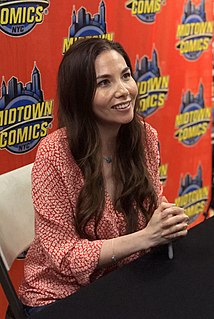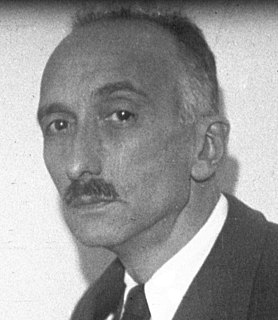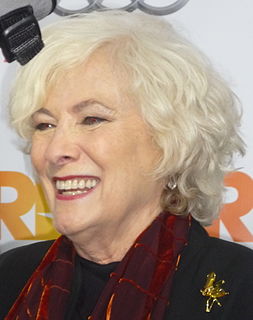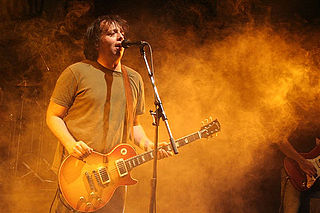Top 218 Nineteen Quotes & Sayings - Page 4
Explore popular Nineteen quotes.
Last updated on April 16, 2025.
I traveled around America and then at nineteen, went to Europe and hitchhiked from London to the Himalayas in India. I studied various forms of Christianity, Judaism, Islam, and in India, various forms of Buddhism and Hinduism. Eventually, I came to the path of unconditional love and devotion to the one God, who in our tradition we call Krishna. I met my guru and became a swami. This allowed me to share that gift, which I consider to be a very deep universal expression of compassion.
If you asked twenty good men to-day what they thought the highest of the virtues, nineteen of them would reply, Unselfishness. But if you asked almost any of the great Christians of old he would have replied, Love - You see what has happened? A negative term has been substituted for a positive, and this is of more than philological importance. The negative ideal of Unselfishness carries with it the suggestion not primarily of securing good things for others, but of going without them ourselves, as if our abstinence and not their happiness was the important point.
So You Want to Know All about her. Who she really is. (Was?) Why she swerved off the high road. Hard left to nowhere, recklessly indifferent to me. Hunter Seth Haskins, her firstborn son. I've been chocking that down for nineteen years. Why did she go on her mindless way, leaving me spinning in a whirlwind of her dust?
I felt very low. I had been unmasked only that morning by Jay Cee herself, and I felt now that all the uncomfortable suspicions I had about myself were coming true. After nineteen years of running after good marks and prizes and grants of one sort and another, I was letting up, slowing down, dropping clean out of race.
I've been going to San Diego's Comic-Con every year since 2007 or 2008. The first time I went it was an overwhelming experience because I wasn't expecting all the people; I wasn't even expecting all the joy. I came from a background where, when I was about eighteen or nineteen, I found comic-book fandom. But it was the fandom of online communities. And within those communities there was a tremendous amount of excitement and joy, but I'd never been around people in such a large group setting where this joy was pouring out of them. It was a revelation.
For some years now, I've been doing a program called "Sinatra Sings Sinatra." It's been going on virtually since the end of '98. Nineteen ninety-eight was the year Frank Sinatra died. ... Now having reached what would have been his 100th year - I decided back in 2013 when we started to put all of this together, I decided what we should do was the first "Sinatra Sings Sinatra" in which we go audio visual.
It seems that, after nineteen centuries of extraordinary glorification, the small Host for which so many cathedrals have sprung up, the small Host that has rested in millions of breasts and that has found a tabernacle and worshippers even in the desert - it seems that the triumphant Host of Lourdes and the Eucharistic Congresses of Chicago and Carthage remains as unknown, as secret as when it appeared for the first time in a room in Jerusalem. Light is in the world as in the days of St. John the Baptist, and the world does not know it
When I was nineteen, pureness was the great issue. Instead of the world being divided up into Catholics and Protestants or Republicans and Democrats or white men and black men or even men and women, I saw the world divided into people who had slept with somebody and people who hadn’t, and this seemed the only really significant difference between one person and another.
On this tenth day of June, nineteen hundred and forty, the hand that held the dagger has struck it into the back of its neighbor.... In our unity, in our American unity we will pursue two obvious and simultaneous courses; we will extend to the opponents of force the material resources of this nation, and at the same time we will harness and speed up the use of those resources in order that we ourselves in the Americas may have equipment and training equal to the task of any emergency and every defense.
After 1909, Monet drastically enlarged his brushstrokes, disintegrated his images, and broke through the taming constraints and delicacy of Impressionism for good. Nineteen gnarly paintings, starting in 1909 and carrying through his final seventeen years, finish off the notion that Monet went happily ever after into lily-land.
It's been nineteen days since I've had a suicidal impulse. One of the things that pulls me back is I think to myself, and as a Muslim, I believe that God created everything and intended everything and here we are in this unbelievably vast universe that's billions of years old. And yet, here I am, an individual human being, in a little corner of the galaxy and planet that is remarkable in some ways and unremarkable in others. All I wish is to say that He meant for every single person who's ever lived to live. I don't necessarily understand why but that was His choice and here I am.
Another way of working is setting deliberate constraints that aren't musical ones - like saying, "Well, this piece is going to be three minutes and nineteen seconds long and it's going to have changes here, here and here, and there's going to be a convolution of events here, and there's going to be a very fast rhythm here with a very slow moving part over the top of it." Those are the sort of visual ideas that I can draw out on graph paper. I've done a lot of film music this way.
My mother was superb. Even when I said to her, when I was nineteen, oh, I'm going to India. Her immediate reaction was, oh yes dear, and when are you leaving? She didn't say, oh how could you leave me, your mother? Or wait a bit dear until you get a bit older and you know your own mind. She just said, well, when are you going? And that was because she loved me, not because she didn't love me.
You know, when I was nineteen, Grandpa took me on a roller coaster. Up, down, up, down. Oh, what a ride! I always wanted to go again. You know, it was just so interesting to me that a ride could make me so frightened, so scared, so sick, so excited, and so thrilled all together! Some didn't like it. They went on the merry-go-round. That just goes around. Nothing. I like the roller coaster. You get more out of it.
Some of you may know my story: How for nineteen years, I worked as a manager for a tire plant in Alabama. And some of you may have lived a similar story: After nearly two decades of hard, proud work, I found out that I was making significantly less money than the men who were doing the same work as me.
I promised to bring change to Washington. The underlying reason for the economic mess we're in has been building for years. It's a fundamental imbalance in which the top 1 percent now gets almost a quarter of all national income. We haven't seen income and wealth this concentrated since the late nineteen twenties, and we all know what happened then - the Great Depression. We'll never really get out of the gravitational pull of the Great Recession until we fix this basic problem.
Before the nineteen-seventies, most Republicans in Washington accepted the institutions of the welfare state, and most Democrats agreed with the logic of the Cold War. Despite the passions over various issues, government functioned pretty well. Legislators routinely crossed party lines when they voted, and when they drank; filibusters in the Senate were reserved for the biggest bills; think tanks produced independent research, not partisan talking points. The "D." or "R." after a politician's name did not tell you what he thought about everything, or everything you thought about him.
A bit of theory as we settle down for lunch: the waiter's treatment of Kitty is actually a kind of sandwich, with the bottom bread being the bored and slightly effete way he normally acts with customers, the middle being the crazed and abnormal way he feels around this famous nineteen-year-old girl, and the top bread being his attempt to contain and conceal this alien middle layer with some mode of behavior that at least approximates the bottom layer of boredom and effeteness that is his norm.
I went through a political shift when I was nineteen or twenty. I felt a certain way, and after the shift, I felt the opposite way. And never once did someone yelling at me or making me feel stupid do anything other than reinforce the convictions I had. What did get to me was people listening to me.
My mother had a life-altering stroke when I was nineteen and she died when I was twenty-three. I'm now older than my mother when she died and my relationship with her has really changed over these many years. I continue to stay interested in her and I know her differently now. Losing my mother, losing dear friends, is now part of the fabric of my being alive. And the fabric keeps changing, which is interesting.
I'm a big believer in first impressions," he finally said. "Tell me what your first thought was when Jason walked into the courtroom." Taylor took a sip of her drink and grinned. This one was easy. "I vowed to hate him forever." Jeremy's brown eyes twinkled at this. "That's exactly what I said nineteen years ago, five minutes after he first walked into our dorm room.
When I was twenty-one, a friend gave me a book called Diet for a New America by John Robbins, which exposed the brutal practices of American factory farms. That, coupled with a lecture from Leonardo DiCaprio (when he was nineteen and I was twenty-one) about how such animals are kept and processed, made me lose my desire for factory farm pork and beef right there.
We will not submit to have our own money taken out of our pockets without our consent; because if any man or any set of men take from us without our consent or that of our representatives one shilling in the pound we have not security for the remaining nineteen. We owe to our mother country the duty of subjects but will not pay her the submission of slaves.
When I was fifteen I wrote seven hundred pages of an incredibly bad novel - it's a very funny book I still like a lot. Then, when I was nineteen I wrote a couple hundred pages of another novel, which wasn't very good either. I was still determined to be a writer. And since I was a writer, and here I was twenty-nine years old and I wasn't a very good poet and I wasn't a very good novelist, I thought I would try writing a play, which seems to have worked out a little better.
She stared at Peter, and she realized that in that one moment, when she hadn't been thinking, she knew exactly what he'd felt as he moved through the school with his backpack and his guns. Every kid in this school played a role: jock, brain, beauty, freak. All Peter had done was what they all secretly dreamed of: be someone, even for just nineteen minutes, who nobody else was allowed to judge.
All the people of all the nations which had fought in the First World War were silent during the eleventh minute of the eleventh hour of Armistice Day, which was the eleventh day of the eleventh month. It was during that minute in nineteen hundred and eighteen, that millions upon millions of human beings stopped butchering one another. I have talked to old men who were on battlefields during that minute. They have told me in one way or another that the sudden silence was the Voice of God. So we still have among us some men who can remember when God spoke clearly to mankind.
Did you come of age in those sweet summers of the early nineteen-sixties, when the airwaves were full of rock and roll's doo-wop promise of joy and the nation was full of J.F.K.'s eloquent promise of a New Frontier? I did. Life seemed to be laid out before us like a banquet; everything was for the taking, especially hearts.
Most Americans who made it past the fourth grade have a pretty good idea who Thurgood Marshall, Rosa Parks, and Martin Luther King, Jr., were. Not many Americans have even heard of Alice Paul, Howard W. Smith, and Martha Griffiths. But they played almost as big a role in the history of women’s rights as Marshall and King played in the history of civil rights for African-Americans. They gave women the handle to the door to economic opportunity, and nearly all the gains women have made in that sphere since the nineteen-sixties were made because of what they did.
The idea of the writer who writes nineteen novels, with various ups and downs and levels of experimentation, isn't around so much now. There's a focus, I think, on fewer books, with more pressure on each book to succeed. With that there comes, I think, a certain pressure towards shapeliness in fiction. Towards neatness. And I think writers feel that, and it can effect how they write.
If you've got a great crew it's intense, but its quite short. 'The Elephant Man' was longer than most, for an independent film. That was a 14 week film. But it was because of the intrinsic difficulties. We had to invent a different way of filming, because the makeup was so long. A working day for me with a full makeup on was nineteen hours. So obviously you couldn't do that twice running.
I stopped acting when I was about nineteen, twenty, when I got thrown out of college. I did act for about ten years. I don't know. I suspect I'm still a reasonably good actor, but I don't really know that I want to get on the stage again ... and having to say all those boring words by me over and over again ... I don't know if I want to do that. Also, I like a certain amount of freedom of movement, and if you're acting, you're stuck in one place for a long time. Having said that, I will probably be onstage next fall.


































